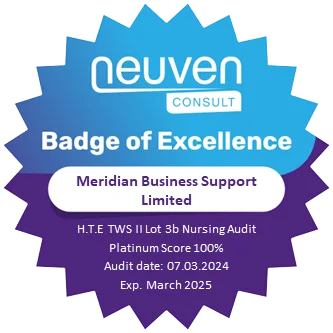How To Cope when you're having a bad day at work
04 Aug, 20165 minutesLauren Lindsay from REED gives her advice on how to cope and react when you're having a bad ...
.jpg)
Lauren Lindsay from REED gives her advice on how to cope and react when you're having a bad day at work...
I recently received a message from a close friend who advised she was having one of those days in work. To be precise, she actually said ‘one of those days where I’m close to crying and/or shouting at someone.’ It dawned on me that we all have days where we feel like the world is out to get us, and it seems like it’d be best to crawl under our desk and lie down rather than deal with it.
As a temps recruiter, I am the first point of contact for any issues my temporary employees have in the workplace, and I have had, multiple times throughout my career, people calling me from toilets/cupboards to notify me of the awful day they are currently enduring. I have heard of employees walking out of jobs, getting into fights with the wrong people and ultimately losing employment opportunities because of the way they have handled the situation. There’s no doubt having a bad day at work can be costly, and I always try to give anyone having one the following advice:
Do not act on it or react to it
Whether it’s been a disagreement with a manager, incompetent colleagues, monumental mistake on your part, or an unpleasant and unforeseeable chain of events has unfolded around you - do not initially react to it. People often say or do something in the heat of the moment, only to consistently regret it later.
When your anger or emotions are running high, do your best to contain any tempting natural reactions, as your judgment will be clouded and you may inadvertently escalate the situation, plus possibly act in a way that reflects poorly on you. It’s difficult to maintain composure, but it’s unprofessional to lose it in work.
Take a breather
The number of times I have stewed at my desk after a difficult phone call are many, and I wish someone had forced me to take a breather. Go and make a cup of tea, relocate to staff breakout area or go for a brisk walk around the block. Most managers will understand ‘I just need to take 5 minutes away from my desk to clear my head, is that ok?’
Whatever you do, physically stand up and remove yourself from the situation. Not only will this prevent you from taking it out on those around you, but a little bit of movement and a change of scene will help clear your head.
Watch who you vent to
Tempting as it is to instantly go and tell everyone in the staff room what ‘Nicola in accounts’ just had the audacity to say to you, be careful who you speak to. I completely understand that confiding in a close colleague who will hopefully calm you down can be helpful, however venting to an audience, even in the staff room, is an unprofessional and unproductive way to handle it.
Keep your business to yourself, and don’t make the problem bigger by involving other people. News travels fast in work environments, and senior management often hear the grumblings of employees through the wrong channels. If you need to expel some emotion, speak to someone out with work, partners or friends, who will empathise but are not directly linked to the situation.
Reflect and resolve
After you have had a chance to calm down, perhaps the day afterwards, take some time to reflect with a clear head on what happened. Stick to facts, not opinions, and don’t add any assumptions to the equation. For example, if someone has made a comment about you or your work, don’t assume ‘that’s obviously because they don’t think I’m competent’ or ‘they’re always out to get me.’
Assess whether what’s happened was justified and if it’s a reflection on you or the other person. If you are at fault, accept responsibility and address the issue professionally (e.g. an apology and/or explanation to the other party) or think of practical measures you can put in place to ensure it doesn’t happen again.
If you think what happened was perhaps a reflection of someone else having a bad day, let it go. Do not take these things personally and definitely don’t let it affect the rest of your day/week/career.
A good rule of thumb to clarify perspective is ‘Will this incident matter in a year's time? Will I even remember it?’ If the answer is no, shake it off, and get back to being the positive, productive, professional you are.
Credit to: Lauren Lindsay















